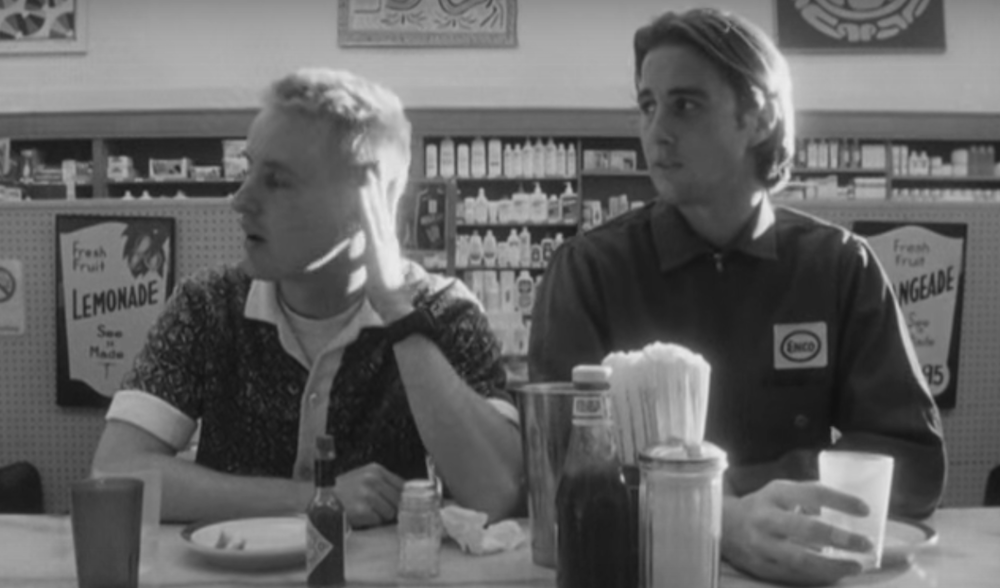There’s something intimate, and at times almost obscene, about watching a great filmmaker’s student film – not even their proper debut. For me, this is particularly true of Wes Anderson’s very first project: the short film Bottle Rocket that would later serve as the foundation for his first feature-length film of the same name a couple years later. The short’s reception at Sundance, combined with Anderson’s fortuitous encounter with legendary producer James L. Brooks, resulted in Anderson and his team being plucked from the indie grind scene with a budget and a chance to make a feature out of their short.
While I’m genuinely glad Anderson got his opportunity, kicking off a career that easily places him among my favorite filmmakers of his generation, I am somewhat surprised the short did it for him. My friend Hunter recently described the feature-length Bottle Rocket as a “less-funny Kevin Smith”, which I feel is too harsh for the full film but is pretty spot-on for the 14-minute short: a black and white indie comedy about bored (and boring) dudes talking and undergoing small-scale misadventures.

However, there is something of substance here. I recently endured the vastly over-praised Trainspotting for the second time and it reminded me how much of the ’90s indie scene was a cesspool of Tarantino wannabes (though many of the directors who started there eventually found their own trajectory). Too many movies about bumbling criminals talking about quirky pop culture, where the playfulness blends with the crassness and strives for just a whiff of the operatic. Anderson takes these basic narrative elements – a shaggy crime story centered around some lovable losers – and gives them a wholly different feel. He filters them through the lens of the French New Wave and satiric bourgeois deadpan. His quirky instincts (bordering on twee, but still on the right side of the line) are evident from the start. For example, the most talked about touch in the short is scoring a scene of gunfire to a Vince Guaraldi track from A Charlie Brown Christmas. When the scene was recreated in the feature-length film, Anderson and his team couldn’t clear the rights for the track, but the carefully controlled irony really pops.
There’s also the significant matter of the cast: As much as Bottle Rocket introduced Anderson to the world, it also introduced his buddy Owen Wilson – and, to a lesser extent, Luke Wilson. It took a few films before the movie world realized that Anderson was the most important talent of the group, as Owen Wilson was an A-minus-list movie star for a minute there. But the Wilsons are genuinely key voices here, with Owen getting a writing credit, and the brothers showing good timing and chemistry from the start (intriguingly not cast as siblings).
I suppose my main issue with the short, beyond its unformed artistic vision and incomplete production, is the same issue I have with Hotel Chevalier: In a short format, the hard-earned generosity and empathy that Wes inevitably builds for his world and his characters never get a chance to accumulate, so it inevitably ends up feeling more like a stylish magazine ad than an actual story. Whether you blame it on Wes’s developing voice or the limitations of short cinema, this version of Bottle Rocket offers only a fleeting, shallow hint of what Anderson could and would become. I’ll ultimately give this short just a little bit of leeway due to the voyeuristic curiosity of watching a great talent in its earliest form, but not much else.
Is It Good?
Nearly Good (4/8)
Dan is the founder and head critic of The Goods. Follow Dan on Letterboxd. Join the Discord for updates and discussion.


One reply on “Bottle Rocket (Short Film) (1994)”
Yeah, now that you say it, “less-interesting Tarantino” is probably a better description of the feature, or a combination thereof.